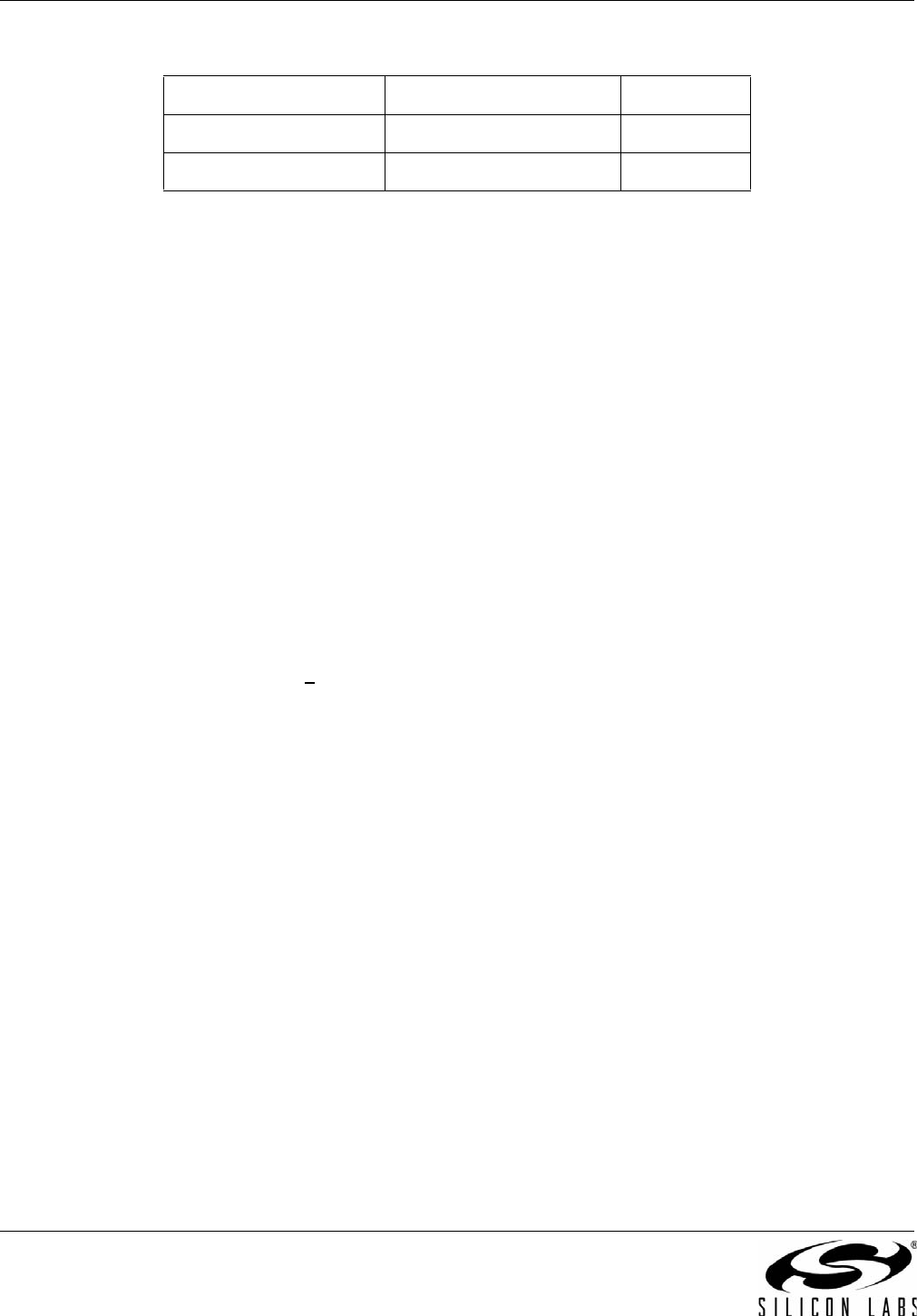
Si53xx-RM
86 Rev. 0.5
7.5.3. Free Run Reference Frequency Constraints
All crystals and external oscillators must lie within these two bands
Not every crystal will work; they should be tested
An external oscillator can be used at all four bands
The frequency at the phase detector (f3) must be the same for both CKIN1 and XA/XB or else switching cannot
be hitless
To avoid spurs, avoid outputs that are an integer (or near integer) of the XA/XB frequency.
7.5.4. Free Run Reference Frequency Constraints
While in Free Run:
CKOUT frequency tracks the reference frequency.
For very low drift, a TCXO or OCXO reference is necessary.
CKOUT Jitter:
XA/XB to CKOUT jitter transfer function is roughly one-to-one.
For very low jitter, either use a high quality crystal or external oscillator.
3rd overtone crystals have lower close-in phase noise.
In general, higher XA/XB frequency > lower jitter.
XA/XB frequency accuracy:
For hitless switching, to meet all published specifications, the XA/XB frequency divided by N32 should match the CLKIN
frequency divided by N31. If they do not match, the clock switch will still be well-behaved.
Other than the above, the absolute accuracy of the XA/XB frequency is not important.
XA/XB Frequency Min XA/XB Frequency Max Xtal
109 MHz 125.5 MHz 3rd overtone
37 MHz 41 MHz Fundamental
CKIN
N31
---------------
XA-XB
N32
------------------
f
3
==
CKOUT
XA-XB
----------------------
Integer
